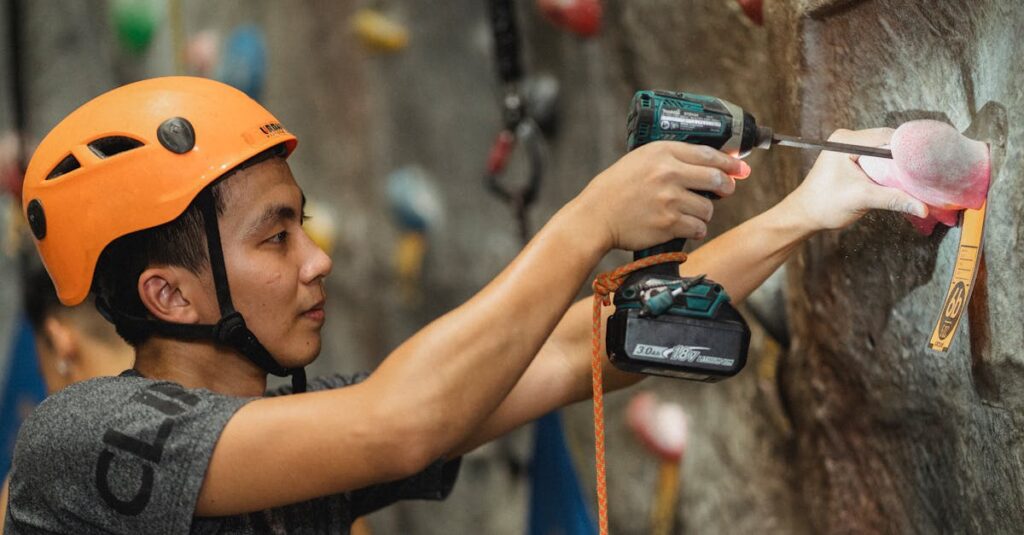In a world where athletic prowess meets scientific inquiry, sport science degrees are the ultimate game-changer. Imagine combining your passion for sports with the analytical skills to understand the human body like never before. It’s like being a superhero but with a lab coat instead of a cape—who wouldn’t want that?
Whether you dream of optimizing athletes’ performance or diving into the fascinating world of sports psychology, a sport science degree opens doors to a vibrant career. From coaching to rehabilitation, this degree isn’t just a ticket to the sidelines; it’s a passport to a dynamic field where science and sports collide. So, lace up those sneakers and get ready to explore how a sport science degree can turn your love for sports into a thriving profession.
Sport Science Degrees
Sport science degrees provide a comprehensive education that integrates physical education, biology, and psychology. These programs cover topics like exercise physiology, biomechanics, and nutrition. Students gain insights into the science behind human movement and performance optimization.
Master’s programs in sport science often focus on specialized areas, including exercise science, sports management, and athletic training. Graduates may pursue careers in coaching, sports therapy, and fitness assessment. Advanced study increases competitiveness in the job market.
Bachelor’s degrees typically require coursework in anatomy, injury prevention, and strength training methods. Hands-on experience through internships or laboratory work offers practical skills crucial for future roles. Knowledge of current technologies used in performance analysis also forms part of the curriculum.
Field-specific certifications often complement a sport science degree. Credentials such as certified strength and conditioning specialist or registered dietitian enhance career prospects. Professional organizations provide networking opportunities and resources for ongoing education.
Programs at various universities might tailor coursework to regional sports industries, aligning with specific community needs. Graduates thus benefit from localized knowledge while retaining a global perspective. The blend of theory and practical application keeps students engaged, making sport science degrees appealing for both traditional and non-traditional students.
Types of Sport Science Degrees

Sport science degrees offer various academic paths, each tailored to specific career goals within the field. Understanding these types can help students choose the right program for their aspirations.
Bachelor’s Degrees
Bachelor’s degrees in sport science typically span four years and provide a broad foundation in essential subjects. Coursework includes topics like exercise physiology, kinesiology, and sports nutrition. Students also engage in hands-on learning through labs and internships, enhancing their practical understanding. Graduates often pursue entry-level positions in fitness training, coaching, or sports management. Some may use their degree as a stepping stone for advanced studies or specialized certifications.
Master’s Degrees
Master’s degrees in sport science focus on specialized areas, such as sports psychology or athletic training. Programs usually require one to two years of study beyond a bachelor’s degree. Students deepen their knowledge of topics like biomechanics, performance enhancement, and research methodologies. Many master’s programs also require a capstone project or thesis, allowing students to conduct original research. Graduates are well-prepared for leadership roles in athletic departments, fitness organizations, or clinical settings.
Doctoral Degrees
Doctoral degrees in sport science represent the highest level of academic achievement in the field. Programs often take three to five years to complete and entail rigorous study and research. Students focus on advanced topics such as exercise epidemiology and sports performance research. Doctoral candidates typically conduct significant original research, contributing valuable insights to the field. Career opportunities include university faculty positions, advanced research roles, and high-level consultancy within professional sports organizations.
Key Benefits of Pursuing Sport Science Degrees
Pursuing a sport science degree offers a range of advantages that appeal to various interests and goals. Graduates often find diverse career opportunities in fields such as coaching, athletic training, and exercise physiology. The degree also equips students with a comprehensive understanding of the science behind human movement and performance.
Hands-on experience is a significant aspect of sport science programs. Students engage in internships and practical training, which enhance their learning and job readiness. This practical application of theory fosters critical thinking and problem-solving skills essential for real-world scenarios.
Networking opportunities abound within sport science degrees. Students connect with professionals through coursework, workshops, and industry events. These connections can lead to mentorships or job offers, increasing the likelihood of career success.
The interdisciplinary nature of sport science degrees further enriches students’ education. Programs integrate knowledge from fields like biology, psychology, and nutrition, promoting a holistic understanding of athletic performance. This broad foundation equips graduates with the skills needed to adapt in a dynamic job market.
Job security remains high for sport science graduates. The increasing focus on health and fitness leads to rising demand for qualified professionals. This trend indicates that graduates possess a strong competitive edge when entering the workforce.
Advanced degree options also enhance career prospects. Earning a master’s or doctoral degree allows for specialization in areas such as sports psychology or exercise performance. Those pursuing higher education enhance their qualifications, broadening their career opportunities further.
Career Opportunities with Sport Science Degrees
Graduates with sport science degrees find a wealth of career options across various sectors. Coaching positions attract many, allowing individuals to enhance athletes’ performance through tailored training programs. Athletic training roles focus on injury prevention and rehabilitation, providing crucial support to athletes across different sports.
Exercise physiologists play an essential role in assessing and improving physical fitness. They work in fitness centers, rehabilitation facilities, and clinical settings, designing exercise plans that cater to unique needs. Sports psychologists help athletes optimize mental performance, addressing issues like motivation and anxiety, which leads to improved outcomes.
Fitness management presents another avenue for sport science graduates. This career involves overseeing fitness programs in gyms and health clubs, ensuring members achieve their wellness goals. Additionally, nutritionists and dietitians specialize in sports nutrition, advising athletes on diet strategies that enhance performance.
Research roles provide opportunities for those interested in the scientific aspects of sport science. Researchers engage in studies that advance knowledge on areas like biomechanics and physiology, contributing to innovations in training methods and equipment. Teaching positions are available for those with advanced degrees, allowing them to inspire future generations in academic contexts.
Field-specific certifications can significantly boost employability and career advancement. Graduates often pursue certifications in personal training, strength coaching, or sports nutrition, making them more attractive to employers. Connections within the sports industry foster networking opportunities, leading to mentorships and potential job offers.
With health and fitness trends rising, sport science graduates enjoy high job security. Specializations in areas such as exercise performance or sports psychology further enhance career prospects, equipping graduates to tackle evolving challenges in the dynamic field of sports.
Notable Institutions Offering Sport Science Degrees
Numerous institutions provide sport science degrees, each with unique strengths. The University of California, Los Angeles (UCLA) offers a Bachelor of Science in Kinesiology that integrates research opportunities with hands-on experience in various sports settings. Arizona State University has a well-regarded Bachelor of Arts in Sports Science and Management, focusing on developing practical skills alongside theoretical knowledge.
The University of Florida’s Bachelor of Science in Applied Physiology and Kinesiology emphasizes exercise science, preparing graduates for careers in personal training and sports medicine. At Ohio University, students can pursue a Master of Science in Exercise Physiology, which covers advanced topics such as metabolism during exercise and adaptations to physical training.
Penn State University provides a Bachelor of Science in Kinesiology, which includes coursework in health-related fitness, along with experiential learning opportunities. The University of North Carolina’s Master of Arts in Exercise and Sport Science equips students with the skills needed for careers in athletic performance and rehabilitation.
Boston University offers a Doctor of Philosophy in Biokinesiology, focusing on research that contributes to innovation in sports science. Meanwhile, the University of Houston features a Bachelor of Science in Health and Fitness, emphasizing practical skills paired with scientific knowledge to prepare students for entry-level positions in fitness industries.
These institutions represent only a portion of the many educational options available for aspiring sport science professionals. Graduates from these programs often enter diverse roles, contributing to advancements in sports performance and health-related fields.
Conclusion
Pursuing a sport science degree opens doors to a world where passion for sports meets scientific inquiry. Graduates are well-equipped to tackle various roles in coaching, athletic training, and exercise physiology. The blend of theoretical knowledge and practical experience ensures they’re ready for the dynamic demands of the sports industry.
With a focus on health and fitness becoming increasingly important, the job market for sport science professionals is robust. Specialized degrees and certifications further enhance their career trajectories, allowing them to excel in areas like sports psychology and nutrition. As the field continues to evolve, those with a sport science background are poised to make significant contributions, driving innovations in athletic performance and overall well-being.



